Backup Generator for Your Apartment – your Life Saver 2023
Backup Generator for Your Apartment
When power outages occur, it can be a major inconvenience and potentially dangerous for those living in apartments. In an apartment setting, having a backup generator can provide peace of mind and safety for you and your family. A backup generator can protect your appliances and electronics, allow for the continuation of essential services such as heating and cooling, and even save you money in the long run.
In this blog post, we will discuss the importance of having a backup generator in an apartment setting and give a brief overview of the potential hazards and power outages that can occur. We will also provide a guide on what to look for when choosing the right generator for your needs, as well as tips on proper maintenance and storage.
Advantages of Having a Backup Generator

- Peace of mind and safety: One of the primary benefits of having a backup generator is the peace of mind it provides. Knowing that you have a reliable source of power during an unexpected power outage can give you and your family a sense of security and safety.
- Protection for your appliances and electronics: A backup generator can protect your appliances and electronics from damage caused by power surges or outages. By having a generator, you can ensure that your appliances and electronics will continue to function even during an unexpected power outage.
- Continuation of essential services: A backup generator can allow for the continuation of essential services such as heating and cooling, lighting, internet and communication. This means that even during a power outage, you can have access to the essential services you need to live comfortably and safely.
- Cost savings: Investing in a backup generator can save you money in the long run. The cost of repairing or replacing appliances and electronics damaged during a power outage can be significant. By having a generator, you can protect your investments and save money on potential repairs or replacements.
- Communication and connectivity: A generator can keep the communication lines open. During a power outage, mobile networks and internet may be down, and having a generator ensures that you can stay connected with the outside world. This is especially important during emergency situations.
Having a backup generator is an investment that can provide peace of mind and safety for you and your family, protect your appliances and electronics, allow for the continuation of essential services, and save you money in the long run. It is a valuable addition to any household, especially for those living in an apartment setting.
Choosing the Right Backup Generator

When it comes to choosing the right backup generator for your needs, there are several important factors to consider. Here are some key considerations to keep in mind:
- Size and power output: The size and power output of your generator will depend on the specific needs of your household. Consider the number of appliances and electronics you need to power, as well as the size of your living space. You will want to choose a generator that can provide enough power to meet your needs, but not so much that it is too large or expensive.
- Noise level: The noise level of your generator is also an important consideration, especially if you live in an apartment setting. Look for generators with low noise levels or sound-proofing features to minimize disturbance to you and your neighbors.
- Portability: Consider the ease of moving your generator around. If you live in an apartment, it’s better to have a portable generator that you can take with you if you move to a new apartment.
- Fuel source: The fuel source for your generator will depend on your specific needs and preferences. Gasoline, diesel, and propane are common options, each with their own advantages and disadvantages. Consider the availability, cost, and ease of use of each fuel source before making a decision.
- Safety features: Safety should be a top priority when choosing a generator. Look for features such as automatic shut-off, low oil shutdown, and GFCI outlets.
- Brand reputation and customer service: Research the brand of the generator you are considering, check customer reviews and ratings to get an idea of the company’s reputation for quality and customer service. It’s important to choose a brand with a good reputation for quality and customer service, as you’ll want to be sure you can rely on them for support and assistance if needed.
By keeping these factors in mind, you can make an informed decision and choose the right backup generator for your specific needs.
Regulations and Safety precautions

When installing and operating a backup generator, it is important to comply with all building codes and regulations. Not only will this ensure that your generator is installed and used safely, but it will also ensure that your generator is up to code and legal to operate.
- Building codes and regulations: Each state, city, and municipality has its own specific building codes and regulations regarding backup generators. Be sure to check with your local authorities to understand the regulations and requirements in your area.
- Safety measures for generator operation and use: It is important to follow the manufacturer’s instructions and guidelines when operating your generator. This includes proper placement, ventilation, and use of the generator. The manufacturer’s instructions will also include information on how to safely connect and disconnect your generator.
- Importance of proper ventilation and exhaust: Generators produce carbon monoxide, a toxic gas that can be fatal if inhaled. It is essential to ensure that your generator is properly ventilated and that the exhaust is directed away from windows, doors, and vents. It is also important to install a carbon monoxide detector near the generator to detect any leakage.
By following all building codes and regulations, and taking the proper safety measures, you can ensure that your generator is used safely and legally.
It is also important to remember that a generator is a powerful machine, and should be handled with care. Always use the generator in a well-ventilated area, and follow the manufacturer’s instructions and guidelines to ensure safe operation.
Conclusion
having a backup generator in an apartment setting can provide peace of mind and safety for you and your family, protect your appliances and electronics, allow for the continuation of essential services, and save you money in the long run.
It is an investment worth considering. It is important to choose the right generator by considering factors such as size and power output, noise level, portability, fuel source, safety features, and brand reputation and customer service.
We encourage you to take action and prepare for potential power outages by researching and investing in a backup generator that meets your specific needs. If you need additional resources or information, please reach out to the manufacturer or consult local authorities for more information.
Best standby generator for home use
Having a standby generator can be a lifesaver during power outages. Not only can it keep the lights on and your appliances running, but it can also provide peace of mind knowing that you’re prepared for any interruption in power.
When it comes to choosing a standby generator for your home, there are several options available, including propane generators, natural gas generators, and diesel generators. Each type has its own set of pros and cons, making it important to consider your specific needs and preferences when making a decision.
In this article, we’ll take a look at the best standby generators for home use and help you find the perfect one for your home.
Factors to consider when choosing a standby generator

When choosing a standby generator, there are several important factors to consider to ensure you select the right model for your needs. In this section, we will discuss the main considerations you should take into account, including power output, fuel type, size, automatic vs manual start, and price.
1. Power Output
The power output of a standby generator is measured in watts, and it is one of the most important factors to consider when making your selection. The power output you require will depend on the appliances and systems you need to keep running during a power outage.
For example, a small generator with a power output of 5,000 watts would be sufficient for running a refrigerator, lights, and a few other small appliances, while a larger home may require a generator with a power output of 15,000 watts or more to keep all appliances and systems running.
2. Fuel Type
Standby generators can run on a variety of fuels, including natural gas, propane, and diesel. Natural gas is a popular choice as it is a clean-burning fuel and is readily available in most areas. Propane is another option, but it requires a tank to be installed on your property. Diesel generators are also a good choice, they have a longer lifespan, but they are more expensive than other types of generators.
3. Size
Size of the generator is also an important consideration, as you’ll need to ensure you have enough space to store and operate the generator. Make sure to measure the space where you want to place the generator and check the dimension of the generator before buying to make sure it will fit.
Automatic vs Manual Start

Standby generators can either be started automatically when there is a power outage or manually by pushing a button. Automatic start generators are more convenient, as they turn on automatically to provide power to your home as soon as there is a power outage.
Manual start generators, on the other hand, require you to start them manually, which could cause some delay in getting power back on if you are not at home or otherwise unable to start the generator.
Price
The cost of a standby generator can vary significantly depending on the model, size, and fuel type. While it’s important to consider the price, you also need to balance the cost with the other factors mentioned above, such as power output, fuel type, and size, to ensure you get a generator that will meet your needs without breaking the bank.
By considering these key factors and taking the time to find the right standby generator for your home, you can ensure that you are prepared for power outages and have the peace of mind that your home and loved ones will be safe and comfortable during an emergency.
Top standby generators for home use
When it comes to choosing a standby generator for your home, there are many options available on the market. In this section, we will take a look at some of the top models and compare their features, pros, and cons to help you make an informed decision.
Comparison of the Top Models
One of the top standby generators for home use is the Generac 22kW Standby Generator. This model has a power output of 22,000 watts and runs on natural gas. It has an automatic transfer switch and a mobile link remote monitoring system that allows you to monitor the generator’s status from your phone or computer. It is ideal for large homes with high power consumption.
Another top model is the Kohler 14RESAL-200SELS Standby Generator, which has a power output of 14,000 watts and also runs on natural gas. It has an automatic transfer switch and an automatic exercise function that starts the generator once a week to ensure it is always ready for an outage. This model is suitable for mid-size homes with moderate power consumption
Pros and Cons
The Generac 22kW has a high power output and runs on a clean burning fuel (Natural Gas), It also has a monitoring system which allows you to check the status of the generator remotely. The downside of this generator is that it is quite expensive.
The Kohler 14RESAL-200SELS is more affordable than the Generac model and also has an automatic exercise function that starts the generator once a week. But, it has a lower power output and is more appropriate for mid-size homes.
Recommendations
For small homes with low power consumption, the Generac 8kW Standby Generator is a great choice. It has a power output of 8,000 watts and runs on natural gas or propane.
For larger homes with high power consumption, the Generac 22kW Standby Generator is recommended. This model has a power output of 22,000 watts and runs on natural gas.
For homes with moderate power consumption, the Kohler 14RESAL-200SELS Standby Generator is a good choice. It has a power output of 14,000 watts and runs on natural gas.
It’s important to note that these are just a few examples of the many standby generators available on the market. When making your selection, be sure to take into account your specific needs and requirements, including the size of your home, the appliances you need to keep running during an outage, and your budget.
How to install and maintain a standby generator

Installing a standby generator is a complex task that should be done by a licensed electrician, who will ensure that the generator is properly connected to your home’s electrical system and that it complies with local codes and regulations.
However, understanding the process can help you be better prepared and have a better communication with the professional. In this section, we will provide a step-by-step guide for installing a standby generator, as well as tips for maintaining and troubleshooting the generator, and information on warranty and service options.
Step-by-Step Guide for Installing a Generator
- Choose the location for your generator: The location for your generator should be level and well-drained, with enough clearance for maintenance and good ventilation.
- Prepare the electrical and fuel connections: Your electrician will need to run a dedicated electrical circuit from your generator to your home’s electrical panel, and connect the generator to a fuel source (natural gas, propane, or diesel).
- Install the generator and connect it to your home’s electrical system: The generator should be installed and connected to your home’s electrical system according to the manufacturer’s instructions and in compliance with local codes and regulations.
- Test the generator: After the generator has been installed and connected to your home’s electrical system, it should be tested to ensure that it is operating correctly.
Tips for Maintaining and Troubleshooting your Generator
- Keep the generator and the area around it clean, free of debris and lubricate the moving parts.
- Perform regular inspections and check the oil, coolant, and fuel levels.
- Test the generator on a regular basis to ensure it is in good working condition.
- Follow the manufacturer’s instructions for troubleshooting and repair.
- Keep the generator manual, as well as all service records in a safe place.
Information on Warranty and Service Options
Most standby generators come with a warranty, which covers the cost of repairs or replacement in the event of a defect or malfunction.
It is important to have your generator serviced on a regular basis, at least once a year, to keep it running efficiently and ensure that it is ready to operate in an emergency.
Some companies offer service plans, including regular maintenance, inspections, and priority service in case of an emergency.
Installing and maintaining a standby generator can seem daunting, but by working with a licensed electrician and following these tips, you can ensure that your generator is properly installed and maintained, providing peace of mind and protection for your home and loved ones during a power outage.
Conclusion
Having a standby generator can provide peace of mind in the event of a power outage. When choosing a generator for your home, it is important to consider factors such as power output, fuel type, size, automatic vs manual start, and price.
The Generac 22kW Standby Generator, Kohler 14RESAL-200SELS Standby Generator, Generac 8kW Standby Generator are some of the best standby generator options available on the market.
Properly installing and maintaining a standby generator is crucial to ensure it will function properly in case of an emergency, for this reason it is recommended to work with a licensed electrician.
We hope this article has provided you with the information you need to make an informed decision about the best standby generator for your home.
For more information on standby generators, visit the websites of leading manufacturers such as Generac, Kohler, and Cummins. Additionally, consult local codes and regulations for more information about the installation and maintenance of standby generators in your area.
The Advantages of having a Mini Generator at Home: Why you should consider
In today’s world, power outages can happen unexpectedly and often at the most inconvenient times. Having a mini generator at home can provide peace of mind and ensure that essential appliances and devices continue to run during an emergency.
In this article, we will discuss what a mini generator is, how it works, and the advantages of having one at home. A mini generator is a small, portable power source that can provide electricity to your home during power outages. It can be especially handy during natural disasters or when you live in an area with frequent power cuts.
It can keep lights, refrigerators, communication devices, and other essential items running during an emergency, thus providing comfort and security during uncertain times. We will also explore the various types of mini generators available, their capabilities and how to choose the right one for your needs.
Essential Appliances and Devices
When a power outage occurs, it’s important to have access to certain essential appliances and devices. This can include lights, refrigerators, communication devices, and other equipment that helps to keep you safe, comfortable, and connected to the outside world. A mini generator can be a valuable tool in keeping these appliances and devices running during an emergency.
Lights, for example, can provide a sense of security during a power outage, especially when the outage occurs at night. With a mini generator, you can ensure that your lights stay on, providing illumination and reducing the risk of accidents. Refrigerators and freezers are another essential appliance that can be powered by a mini generator.
This can be important for keeping food fresh and preventing waste. Communication devices, like phones and computers, are also essential during a power outage. With a mini generator, you can keep these devices charged and ensure that you can stay in touch with family and friends, or access critical information during an emergency.
There are various situations where a mini generator could come in handy. For example, during a natural disaster like a hurricane, tropical storm or a severe storm, power outages can last for days or even weeks.
A mini generator can provide power to run critical equipment, communication devices, lights, refrigerators and other appliances, helping to keep you safe and comfortable during the emergency. Additionally, for those living in areas where power cuts are frequent, a mini generator can provide a reliable backup power supply to keep the home running as normal.
having a mini generator can keep essential appliances and devices running during an emergency, providing safety, comfort and connection. It can be a lifesaver in the event of a natural disaster, where power outages can last for days, as well as in areas where power cuts are frequent.
Financial Benefits
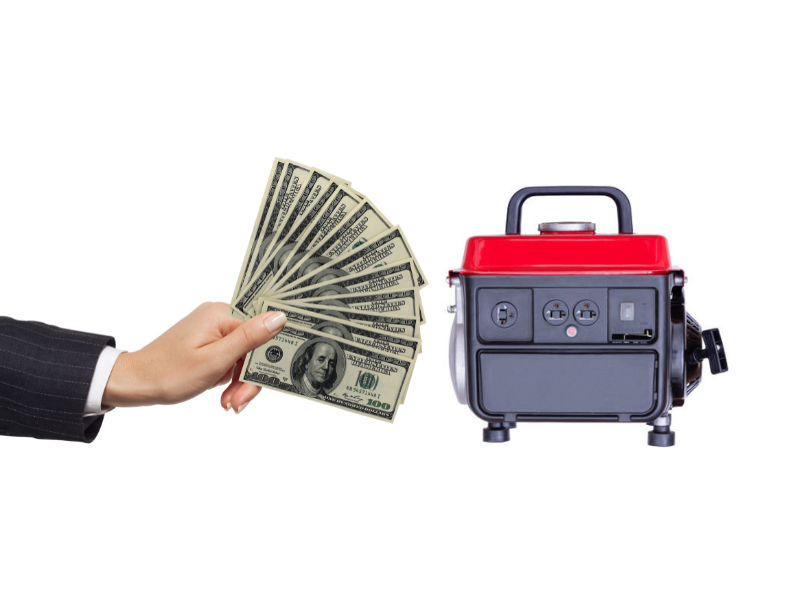
In addition to providing power during an emergency, owning a mini generator can also have financial benefits. One of the main advantages is that it can help to save on electricity bills. By providing an alternative power source, a mini generator can reduce your reliance on grid power, which can lead to lower energy costs.
For businesses, a mini generator can also help to minimize financial losses during power outages. With a mini generator, businesses can continue to operate even during a power outage, thus preventing interruption to their operations and saving on potential losses.
This is particularly important for businesses that rely on electricity, like retail stores, restaurants, and hotels, which can lose significant revenue due to power outages.
Furthermore, owning a mini generator can also reduce the dependency on the main power grid. Many areas experience power outages due to over-reliance on the main grid, and having a backup generator can ensure that power remains uninterrupted during such situations.
For example, if your home or business is located in an area with a high risk of power outages, investing in a generator can save you from the inconvenience, loss of revenue and other potential losses due to power interruptions.
In summary, owning a mini generator can provide not only peace of mind during an emergency but also financial benefits. It can help to save on electricity bills, keep businesses running during power outages and reduce dependency on main power grid. These benefits make mini generator a smart investment for homeowners and business owners alike.
Natural Disaster Preparedness
Natural disasters, such as hurricanes, tornadoes, and earthquakes, can cause widespread power outages that can last for days or even weeks. During these events, having a mini generator can be a lifesaver. It can provide power to run critical equipment and communication devices that are essential for keeping you and your family safe during an emergency.
A mini generator can power a variety of essential appliances and devices during a natural disaster. This can include lights, refrigerators, communication devices, and small heating and cooling systems. These appliances and devices can help to keep you comfortable, connected, and informed during a crisis.
For example, having lights during an emergency can provide a sense of security and help you to navigate safely through your home. A refrigerator and freezer can help to keep food fresh, reducing the risk of foodborne illnesses. Communication devices, like phones and computers, can provide a way to stay in touch with loved ones and access critical information during an emergency.
In addition to providing power during a natural disaster, it’s also important to have an emergency preparedness plan that includes a mini generator as a primary backup power supply. This includes making sure you have a sufficient amount of fuel on hand, and knowing how to properly maintain and operate your generator.
It’s also important to familiarize yourself with any local regulations and building codes related to generator use, and make sure that your generator is properly installed and up to code.
To conclude, having a mini generator as part of your emergency preparedness plan can be a lifesaver during a natural disaster, when power outages can last for days or even weeks. It can provide power to run critical equipment and communication devices, keeping you and your family safe and comfortable during an emergency.
It’s important to have a well-thought-out plan for using and maintaining your mini generator as well as to be familiar with any local regulations and building codes.
Choosing the Right Mini Generator

Choosing the right mini generator for your home can be a daunting task, but with the right information, it doesn’t have to be. There are two main types of mini generators available: portable and standby. Portable generators are small, lightweight and easy to move around, making them a great option for occasional use or for use during power outages.
Standby generators, on the other hand, are permanently installed and automatically turn on in the event of a power outage, making them a great option for those who want a more reliable backup power source.
When choosing a mini generator, it’s important to consider the power output. This is measured in watts and determines how much power the generator can produce. Make sure to choose a generator with a power output that is sufficient for your needs.
Other factors to consider include the fuel source, whether gasoline, propane, or diesel, and the generator’s portability. If you plan to move your generator around, you’ll want to choose one that is lightweight and easy to move.
Safety is an important consideration when operating a generator, so it’s important to choose a generator that meets safety standards and to understand the manufacturer’s safety guidelines. Also, make sure to choose a generator that meets local building codes and regulations.
Lastly, it’s important to choose the right size generator for your home. The size you choose will depend on the amount of power you need and the number of appliances you plan to run. A small generator may be suitable for powering a few essential appliances during a power outage, while a larger generator may be needed to power your entire home during an extended outage.
Maintenance and Storage
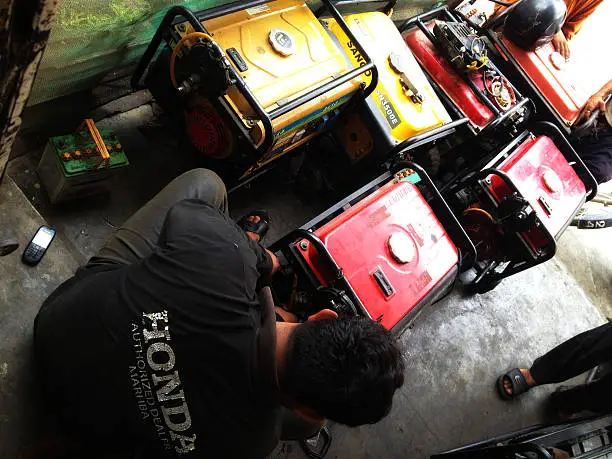
Maintaining and storing your mini generator properly is essential to ensure that it runs smoothly and is ready to use when you need it. Proper maintenance and storage can also prolong the life of your generator and prevent costly repairs.
One of the most important things to keep in mind is to change the oil and air filter of your generator as recommended by the manufacturer. It’s important to use the right type of oil for your generator, as well as to change it at the right time, to ensure that your generator runs smoothly and efficiently. The air filter should be checked and cleaned or replaced as necessary.
To safely store your mini generator, it’s important to keep it in a dry, ventilated space that is away from any flammable materials. Make sure that the generator is clean and dry before storing it, and that the fuel tank is empty. It’s also a good idea to cover the generator to protect it from dust and debris.
If your mini generator doesn’t start, the first thing to check is the fuel level. Make sure that the fuel tank is full and that the fuel is fresh. If the fuel is stale, it may need to be drained and replaced.
If the generator still doesn’t start, check the oil level and make sure that it is sufficient. If you’re still having trouble getting the generator to start, it may be a good idea to consult the manufacturer’s troubleshooting guide or contact a professional for help.
Conclusion
Owning a mini generator can provide a sense of security and peace of mind during power outages. It can power essential appliances and devices, providing comfort and safety for you and your family. It also has financial benefits, such as saving on electricity bills and keeping businesses running during power outages. Furthermore, it can be a lifesaver in the event of a natural disaster, when power outages can last for days or even weeks. Choosing the right mini generator, maintaining and storing it properly are also important factors to consider.
We highly recommend that homeowners and business owners consider owning a mini generator as part of their emergency preparedness plan. It is an investment that will pay off in the long run and will help you to be prepared for any power outages that may occur in the future. Remember that being prepared can give you peace of mind and a sense of security during an emergency. Don’t wait for the power to go out before getting a mini generator, be proactive and get one today.
FAQs:
How does a mini generator work?
A: A mini generator is a portable power source that can convert fuel (such as gasoline, propane or diesel) into electricity. It typically runs on an internal combustion engine that is connected to an alternator, which converts mechanical energy into electrical energy.
What types of appliances and devices can a mini generator power?
A: A mini generator can power a variety of essential appliances and devices, such as lights, refrigerators, communication devices (such as phones and computers), and small heating and cooling systems. However, it is important to check the power output of your mini generator and make sure it is sufficient to power the appliances and devices you need.
Are there any financial benefits of owning a mini generator?
A: Yes, there are a few financial benefits of owning a mini generator. It can help you to save on electricity bills by providing an alternative power source that can reduce your reliance on grid power. It can also help to keep your business running during power outages and minimize the financial losses. It also allows to reduce the dependency on main power grid and keep the power running even when grid is down.
How can I choose the right mini generator for my needs?
A: When choosing a mini generator, there are several factors to consider, such as power output, fuel source, and portability. It’s important to consider how much power you need, and whether you prefer a fuel source that is easy to find and easy to use, like gasoline, or something that is more eco-friendly, like propane. Additionally, consider if portability is important for your needs, and if you need to move generator around your home.
How do I maintain my mini generator?
A: To maintain your mini generator, it’s important to keep it clean, change the oil and air filter as recommended by the manufacturer, and check the fuel and oil levels regularly. It’s also important to store it in a dry, ventilated space that is away from any flammable materials.
What is a standby generator?
A standby generator is a backup power source that automatically turns on in the event of a power outage. It is connected to your home’s electrical system and is designed to keep essential appliances running during an emergency.
Why do I need a standby generator?
A standby generator can provide peace of mind in the event of a power outage. It can keep essential appliances running, such as a refrigerator, lights, and heating/cooling systems, helping to maintain the comfort and safety of your home.
How do I choose the right standby generator for my home?
There are several factors to consider when choosing a standby generator, including power output, fuel type, size, automatic vs manual start, and price. You should also consider the size of your home and the appliances you need to keep running during an outage.
Can I install a standby generator myself?
Installing a standby generator can be a complex task and it is recommended to be done by a professional electrician, who can ensure that the generator is properly connected to your home’s electrical system and is in compliance with local codes and regulations.
How do I maintain my standby generator?
Maintaining your standby generator is important to ensure it is ready to operate in an emergency. This includes regular inspections, cleaning, and oil changes, as well as testing the generator on a regular basis to ensure it is in good working condition.
electric fuse
We are pleased to have you visit our pages on social networking sites,
where we publish exclusive offers on our website.
Our Facebook page here .
Our Twitter account is here .


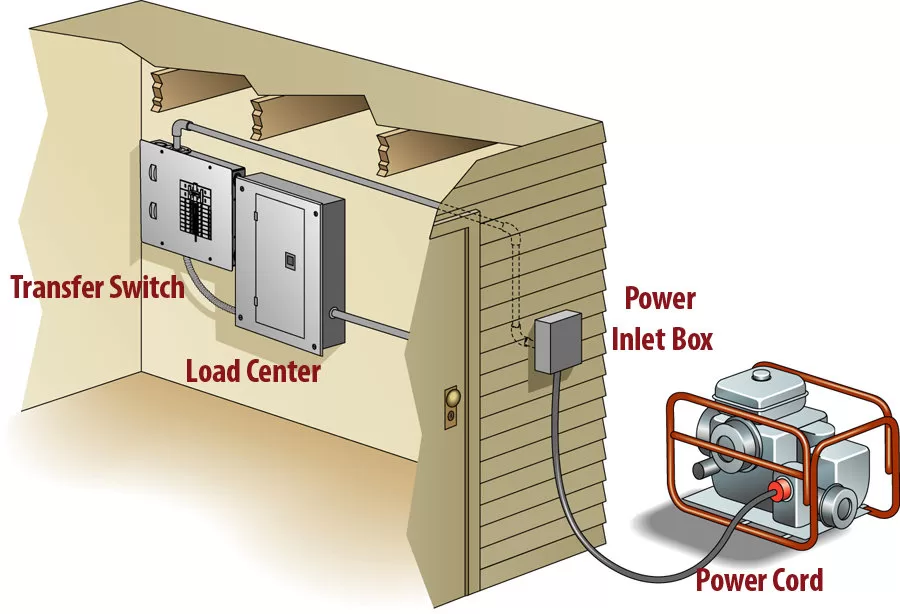




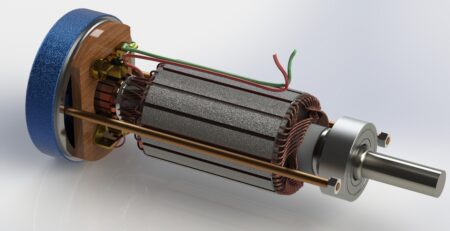
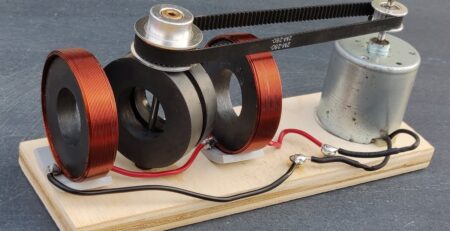
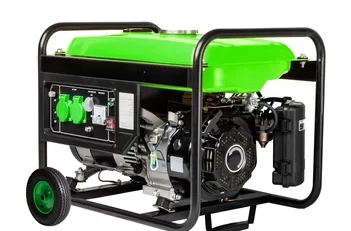
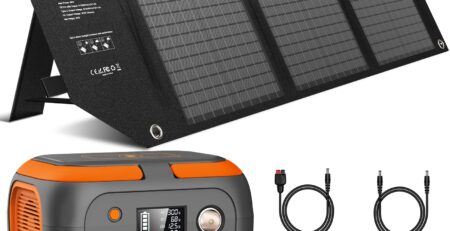
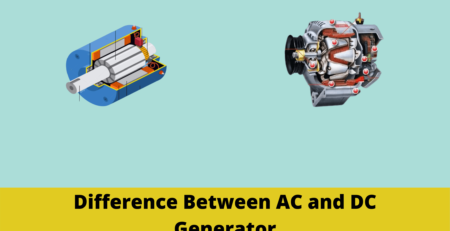

Leave a Reply
You must be logged in to post a comment.